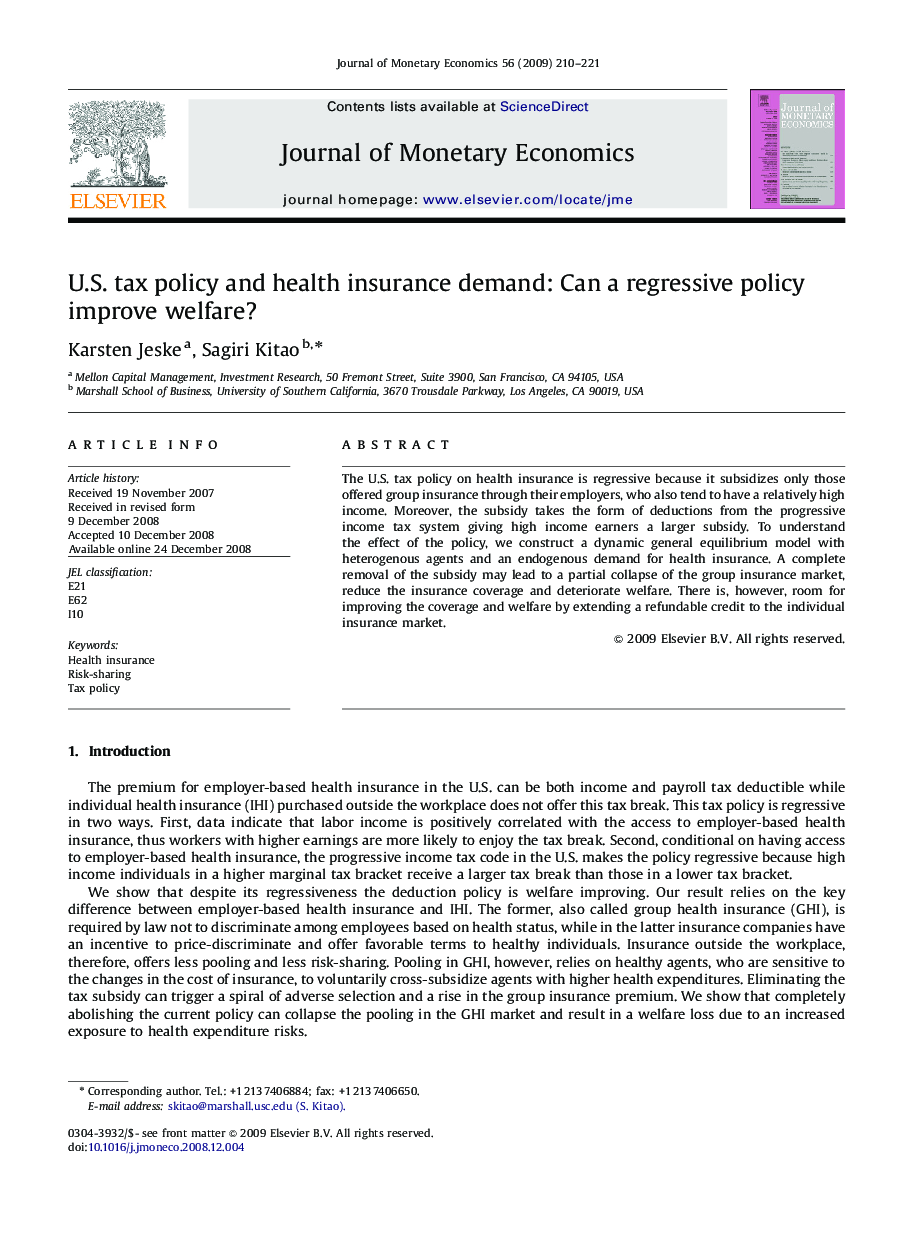| Article ID | Journal | Published Year | Pages | File Type |
|---|---|---|---|---|
| 967144 | Journal of Monetary Economics | 2009 | 12 Pages |
Abstract
The U.S. tax policy on health insurance is regressive because it subsidizes only those offered group insurance through their employers, who also tend to have a relatively high income. Moreover, the subsidy takes the form of deductions from the progressive income tax system giving high income earners a larger subsidy. To understand the effect of the policy, we construct a dynamic general equilibrium model with heterogenous agents and an endogenous demand for health insurance. A complete removal of the subsidy may lead to a partial collapse of the group insurance market, reduce the insurance coverage and deteriorate welfare. There is, however, room for improving the coverage and welfare by extending a refundable credit to the individual insurance market.
Related Topics
Social Sciences and Humanities
Economics, Econometrics and Finance
Economics and Econometrics
Authors
Karsten Jeske, Sagiri Kitao,
